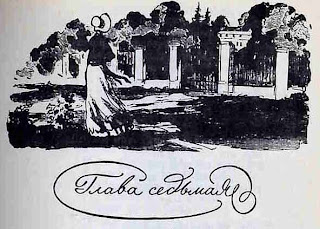
My friend,
Tom, has been bugging me for over a year to set up a blog somewhere. The problem was to come up with the appropriate hook. Tom explained his theory of blogging to me.
It's not hard to come up with a set of things you want to talk about. The problem is to frame it in some subject that
a.) gives you an excuse to post regularly, and
b.) creates at least the illusion of some sort of fresh ideas.
In Tom's case, he chose to post about where he had lunch each day. Since this usually has something to do with where he is, who he's talking to, and what he's generally doing, this then gives him the excuse to talk further about technology, travel, his soccer officiating, and any other topic that seems important. And more importantly, the reader begins to realize that Tom actually has some pretty interesting lunches.
My lunches are usually pretty boring, and that's why I've decided to describe books I'm reading at any moment. I don't dive into this lightly, which is perhaps why it has taken me over a year since I agreed that maybe starting a blog would be a good idea. (Well, that, and general laziness.) Whether or not we are what we eat, surely much more is revealed by what we read.
And that brings me to the first book, Alexander Pushkin's
Eugene Onegin (Евгений Онегин). I first read through this when studying Russian in college, and I'm perennially picking it up now and again, if only in attempt to prevent my Russian knowledge to disappear completely.
In one of my favorite moments, Tatyana is completely cured of her crush on Onegin, not because he just murdered her sister's fiancé in a duel, but because she sees his books. Looking at his collection of simpering 18th century English poetry (which Nabokov points out would have been in terrible translations), she realizes what a shallow and selfish person he is.
Что ж он? Ужели поражнье,
Ничтожный призак, иль еще
Москвич в Гарольдовом плаще,
Чужих причуд истолкованье,
Слов модных полный лексикон?..
Уж не пародия ли он?
In Nabokov's translation:
who's he then? Can it be—an imitation?
an insignificant phantasm, or else
a Muscovite in Harold's mantle,
a glossary of other people's megrims,
a complete lexicon of words in vogue?
Might he not be, in fact, a parody?
Of course, in part, I think that Pushkin was demonstrating how intelligent and perceptive Tatyana is, and not suggesting that everyone can be judged by their libraries. But I also suspect that he meant any educated person to feel a pang at the insinuation that we are "a complete lexicon of words in vogue". Similarly, when Onegin is first introduced, Pushkin satirizes the facile nature in which he spouts epigrams, or memorizes historical anecdotes, but shows no real interest in knowledge at all.
And isn't every blog, or for that matter, any literary effort, in danger of falling into that?
I don't know. I suspect it's time for lunch.



 OK, first off, I'm really not trying to be pretentious here, choosing Pushkin, Bulgakov, and a massive tome on Chinese history. I'm not continuously reading daunting stuff like this. Secondly, I'm not really in the midst of reading this particular book. I only pulled it down off the shelf because I rented the television version of Master and Margarita directed by Vladimir Bortko. I also promise not to attempt any deep analyses of he work, not because I'm demonstrating any restraint, but just because I don't think I'm up to it.
OK, first off, I'm really not trying to be pretentious here, choosing Pushkin, Bulgakov, and a massive tome on Chinese history. I'm not continuously reading daunting stuff like this. Secondly, I'm not really in the midst of reading this particular book. I only pulled it down off the shelf because I rented the television version of Master and Margarita directed by Vladimir Bortko. I also promise not to attempt any deep analyses of he work, not because I'm demonstrating any restraint, but just because I don't think I'm up to it. This has been my evening reading since I returned from my first trip to China at the end of August. Actually, I've been reading it on and off for a while, but at 1,000 pages, it is taking a while. So far, I've reached the rise of Zhu Yuanzhang and the founding of the Ming Dynasty.
This has been my evening reading since I returned from my first trip to China at the end of August. Actually, I've been reading it on and off for a while, but at 1,000 pages, it is taking a while. So far, I've reached the rise of Zhu Yuanzhang and the founding of the Ming Dynasty.